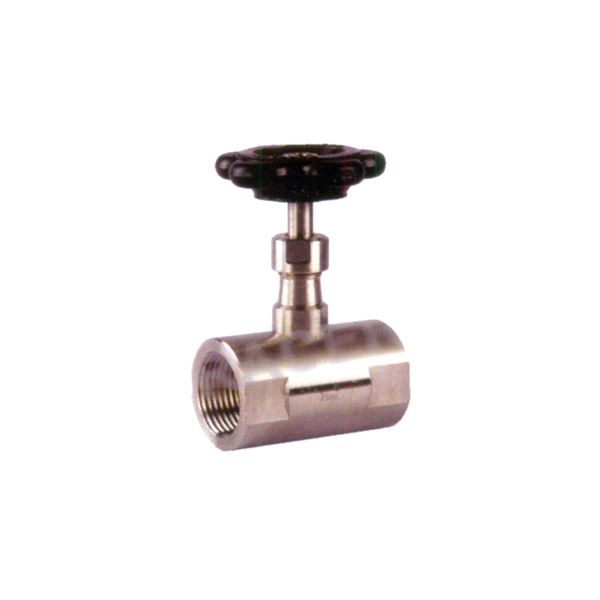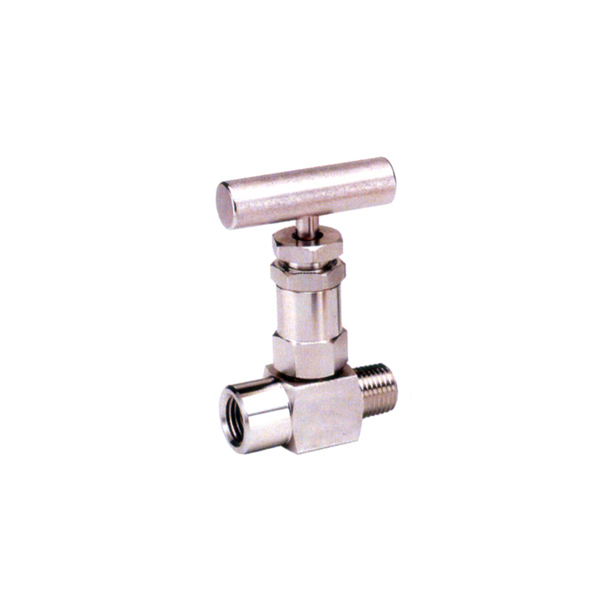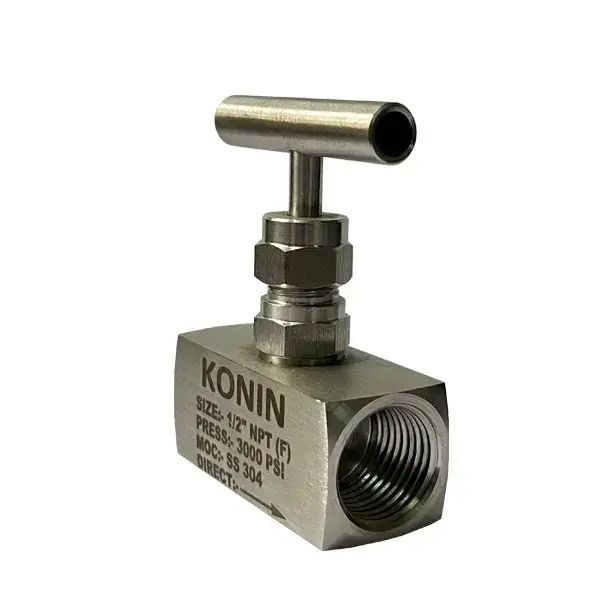We are Manufacturer, Supplier, Exporter of High Pressure Needle Valves, Screwed End, Socket End High Pressure Needle Valves, Industrial Valves, Industrial Actuated Valves, Industrial Valve Actuators, Industrial Valve Accessories and our setup is situated in Belgaum, Karnataka, India.
We majorly target customers from ALL OVER INDIA.
These have wide applications like High Pressure Hydraulic Systems, High Pressure Pneumatic Systems, Oil And Gas Industries, Petrochemical Industries, Chemical Processing Industries, Power Plants, Laboratory Instruments, Analytical Instruments, Aerospace Industries, Defence Industries, High Pressure Reaction Vessels, Pressure Testing Equipments, High Pressure Fluid Systems, Control Panel, Test Benches, Hydraulic Power Packs, Blowout Protection etc.
| Design | Manufactures STD |
| Testing | BS 6755 - Part 1 |
| Size | 15mm to 50mm |
| Rating | 800, 900, 1500, 2500 |
| MOC | CS / SS / Titanium / Special Alloy |
| End Connections : | SWE / SE Both Male & Female BSPT / NPT / BSP |


1. Precise Flow Control
Design: Needle valves are designed for fine flow adjustment. They have a tapered needle-like plunger that fits into a matching seat, allowing for very accurate control of flow rate.
2. Small Flow Path
Throttle Valve: The narrow, tapered orifice of the needle valve enables precise throttling of fluid. This small flow path is ideal for applications where fine control over the flow rate is necessary.
3. Manual Operation
Handwheel or Knob: Needle valves are typically operated manually using a handwheel or knob. This allows the user to make precise adjustments to the flow rate by turning the valve stem.
4. High Pressure Rating
Robust Design: Needle valves are often designed to handle high pressures. They are commonly used in high-pressure applications where accurate flow control is needed without compromising valve integrity.
5. Fine Adjustment
Control Range: Needle valves provide a wide range of adjustment due to their design. They are suitable for applications requiring very small and incremental changes in flow rate.
6. Leak-Proof Design
Sealing: Needle valves are designed to provide a tight seal when closed, minimizing leakage. This is achieved through the precise fit of the needle and seat.
7. Variety of Materials
Material Options: Needle valves are available in a range of materials including stainless steel, brass, plastic, and more. This allows them to be used with various fluids, including corrosive or high-purity substances.
8. Compact Size
Space Efficiency: Needle valves are generally compact and lightweight, making them suitable for installations where space is limited.
9. Flow Characteristics
Linear Flow: The flow characteristic of a needle valve is typically linear or nearly linear with respect to the position of the valve stem. This makes it easier to predict and control flow rates.
10. Temperature and Pressure Ratings
Versatility: Needle valves come in designs that can handle a range of temperatures and pressures, suitable for various industrial and commercial applications.
11. Locking Mechanisms
Set and Lock: Some needle valves feature a locking mechanism to prevent accidental changes to the flow setting once it has been adjusted. This ensures that the flow rate remains stable.
12. Applications
Specialized Use: Needle valves are often used in applications such as gas and liquid sampling, calibration systems, and high-precision instrumentation where fine flow control is critical.
13. Design Variations
Types: There are several types of needle valves, including:
- Standard Needle Valve: For general applications with a variety of fluids.
- Micro Needle Valve: For very fine flow control in low-flow applications.
- High Pressure Needle Valve: Designed to withstand high pressures.
14. Maintenance
Simple Upkeep: Maintenance of needle valves typically involves regular inspection and cleaning of the needle and seat to ensure continued precision and functionality.
15. Flow Measurement
Integration: Needle valves can be integrated with flow meters or sensors to provide real-time feedback on flow rates, enhancing control and monitoring.


